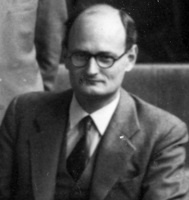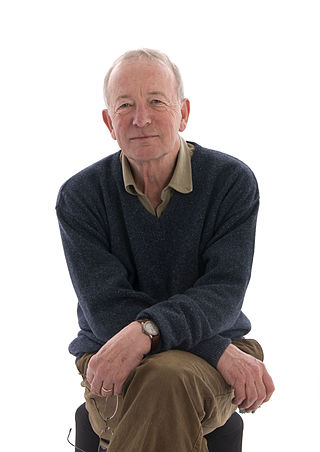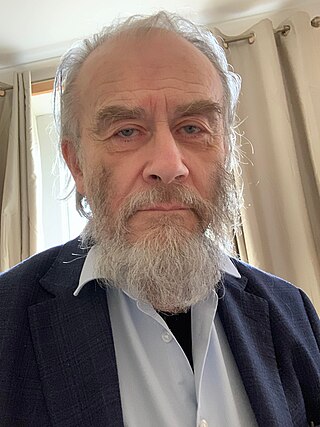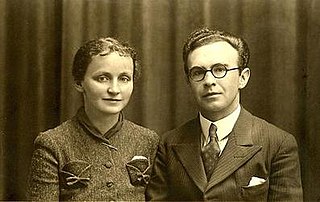Allan David Bloom was an American philosopher, classicist, and academician. He studied under David Grene, Leo Strauss, Richard McKeon, and Alexandre Kojève. He subsequently taught at Cornell University, the University of Toronto, Tel Aviv University, Yale University, the École normale supérieure, and the University of Chicago.

Richard Mervyn Hare, usually cited as R. M. Hare, was a British moral philosopher who held the post of White's Professor of Moral Philosophy at the University of Oxford from 1966 until 1983. He subsequently taught for a number of years at the University of Florida. His meta-ethical theories were influential during the second half of the twentieth century.

Richard Granville Swinburne is an English philosopher. He is an Emeritus Professor of Philosophy at the University of Oxford. Over the last 50 years, Swinburne has been a proponent of philosophical arguments for the existence of God. His philosophical contributions are primarily in the philosophy of religion and philosophy of science. He aroused much discussion with his early work in the philosophy of religion, a trilogy of books consisting of The Coherence of Theism, The Existence of God, and Faith and Reason.

Nicholas Keynes Humphrey is an English neuropsychologist based in Cambridge, known for his work on evolution of primate intelligence and consciousness. He studied mountain gorillas with Dian Fossey in Rwanda; he was the first to demonstrate the existence of "blindsight" after brain damage in monkeys; he proposed the theory of the "social function of intellect". He is the only scientist to have edited the literary journal Granta.

Stephen Richard Lyster Clark is an English philosopher and professor emeritus of philosophy at the University of Liverpool. Clark specialises in the philosophy of religion and animal rights, writing from a philosophical position that might broadly be described as Christian Platonist. He is the author of twenty books, including The Moral Status of Animals (1977), The Nature of the Beast (1982), Animals and Their Moral Standing (1997), G.K. Chesterton (2006), Philosophical Futures (2011), and Ancient Mediterranean Philosophy (2012), as well as 77 scholarly articles, and chapters in another 109 books. He is a former editor-in-chief of the Journal of Applied Philosophy (1990–2001).
Richard John Alexander Talbert is a British-American contemporary ancient historian and classicist on the faculty of the University of North Carolina at Chapel Hill, where he was William Rand Kenan, Jr., Professor of History and is currently Research Professor in charge of the Ancient World Mapping Center. Talbert is a leading scholar of ancient geography and ideas of space in the ancient Mediterranean world.

Eric Alfred Havelock was a British classicist who spent most of his life in Canada and the United States. He was a professor at the University of Toronto and was active in the Canadian socialist movement during the 1930s. In the 1960s and 1970s, he served as chair of the classics departments at both Harvard and Yale. Although he was trained in the turn-of-the-20th-century Oxbridge tradition of classical studies, which saw Greek intellectual history as an unbroken chain of related ideas, Havelock broke radically with his own teachers and proposed an entirely new model for understanding the classical world, based on a sharp division between literature of the 6th and 5th centuries BC on the one hand, and that of the 4th on the other.
Richard Seaford was a British classicist. He was professor emeritus of Classics and Ancient History at the University of Exeter. His work focused on ancient Greek culture, especially that of ancient Athens. He died in December 2023.

Myles Fredric Burnyeat was an English scholar of ancient philosophy.
Neuroarthistory is a term coined by Professor John Onians, an art historian at the University of East Anglia in 2005. Neuroarthistory is an approach that concerns the neurological study of artists, both living and dead.
John B Onians, FSA is Professor Emeritus of World Art at the University of East Anglia, Norwich and specialised in architecture, especially the architectural theory of the Italian Renaissance; painting, sculpture and architecture in Ancient Greece and Rome; Byzantine art, material culture, metaphor and thought; perception and cognition, and the biological basis of art. His recent work has been instrumental in the establishment of Neuroarthistory as a distinct set of methodologies.

"Horns of Consecration" is a term coined by Sir Arthur Evans for the symbol, ubiquitous in Minoan civilization, that is usually thought to represent the horns of the sacred bull. Sir Arthur Evans concluded, after noting numerous examples in Minoan and Mycenaean contexts, that the Horns of Consecration were "a more or less conventionalised article of ritual furniture derived from the actual horns of the sacrificial oxen".

James Carlile (1784–1854) was a Scottish clergyman from Paisley. He was a joint minister of a Scots church in Dublin and an Irish commissioner of education. He introduced a different style of education in Ireland whereby children of different denominations could go to the same school.

John Gwyn Griffiths was a Welsh poet, Egyptologist and nationalist political activist who spent the largest span of his career lecturing at Swansea University.
K-B-D is a triliteral Semitic root with the common meaning of to "be heavy", and thence "be important; honour, majesty, glory".
Christopher Carlile was an Anglican clergyman.
Lorenzo Perilli is an Italian classicist and academic at the University of Rome Tor Vergata. A Professor of Classical Philology, he is Head of the Institute of Literature, Philosophy and Art history, and the Director of the interdisciplinary Research Centre in Classics, Mathematics and Philosophy Forms of Knowledge in the Ancient World, established in 2013 and devoted to ancient science and related disciplines. He is Co-director of the periodical Technai. An international journal on ancient science and technology, and serves on the board of the journal of ancient medicine Galenos.

Charles Oscar Brink was a German-Jewish classicist and Kennedy Professor of Latin at Cambridge University.
Simon Charles Robert Swain, FBA, is a classicist and academic. Since 2000, he has been Professor of Classics at the University of Warwick, where he has also been Pro-Vice-Chancellor for Arts and Social Sciences since 2014.
Francis Richard David Goodyear, FBA, commonly known as Frank Goodyear, was an English classicist.









